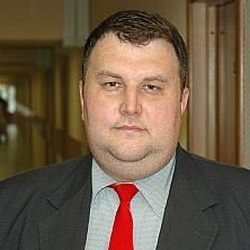‘The share of premium cars is twice smaller’: premium car market review
Chinese FAW entered the segment of premium car sales. Mercedes and BMW sales are shrinking

The exit of leading world brands from the Russian market took the segment of premium cars down. Mercedes S-Klasse and BMW 7er-Reihe sales are staying afloat only thanks to old stock and parallel imports. Hongqi E HS9 by Chinese FAW concern has joined the top 3 popular premium models. Read in a review of Realnoe Vremya’s analytic staff about what regions are in the lead of premium car purchase today, if better-off Russians are ready to shift to the automotive industry of the Celestial Kingdom and what models were bought in April 2023.
The premium car market has deflated under the pressure of sanctions. Just five F and S cars were sold in Tatarstan in April, or a car less than in April 2022. Tatarstan was about to leave the top 10 regional car markets leading in premium car sales. The top 3 in April included Moscow, Moscow Oblast and Saint Petersburg. The republic was outrun by Krasnodar Krai, Kaliningrad and Rostov oblasts, Krasnoyarsk oblasts, Krasnoyarsk Krai as well as Sverdlovsk and Samara oblast.
168 premium cars (minus 26 compared to April 2022) were sold in Moscow, 36 — in Moscow Oblast (plus 18 compared to April 2022), 36 — in Saint Petersburg (minus 11 cars). Premium car sales rose in April in Krasnodar Krai (+4), Rostov (+4) and Samara oblasts (+1) and Krasnoyarsk Krai (+3 cars).
Such cars as Mercedes S-Klasse (91 cars sold in April 2023), BMW 7er-Reihe (33 cars) and Hongqi E HS9 (33 cars) by China’s FAW take the lead in sales in premium models. At the same time, if Mercedes S-Klasse and BMW 7er-Reihe sales decreased, the Chinese concern is expanding its footprint in the Russian market.
Dodge Challenger, Audi A8, Kia K9, Ford Mustang and Mercedes EQS sales rose in April. Those of Porsche Taycan and Genesis G90 went down.
Premium segment shows the biggest fall
The segment statistically uniting F (5.1m long and at least 1.6m high) and S segments (sports cars and supercars), car sales in April 2023 dropped by 2%, according to Avtostat Info, against April 2022 — from 351 to 344 cars.

According to Avtostat Info, the premium segment has shown the biggest fall in the last year because of the exit of leading European and Japanese brands from the market and, consequently, the ban on direct export of expensive vehicles from the US, EU and Japan to Russia.
The share of the premium segment is three times down
Avtostat reads that nearly 9.000 premium cars were sold in Russia during four months of 2023 — it is 68% less than during the same period last year.

Chinese cars can be an alternative to premium cars — the PRC has companies that make them. “I think some Russian clients of the premium segment will consider this option. Those who aren’t happy with it can always take advantage of parallel import. I think they have enough money for this,” thinks Timerkhanov. “I don’t want to insult anybody, but for some reason I have remembered a collocation: “Show-off is more valuable than money.”
2023 added some clarity

“It is important to understand that in some cases simply the way of cooperation between the client and representatives of a brand changed. For instance, Cadillac premium brand, indeed, left the Russian market terminating all guarantee commitments it made and dismissing office workers. All other brands are still here in some way,” said Tarasov. “As for European car companies KAN Avto represents, for instance, the beneficiary of Mercedes-Benz changed. It used to be German Diamler, now Russia’s Avtodom group of companies replaced it.”
According to Tarasov, this is a slight change for clients because Mercedes-Benz meets its commitments without fail, provides dealers with spare parts and offers car supply.
The attitude to the Chinese automotive industry is changing: “We observed in 2022 that some of our clients distrust the Chinese premium segment thinking that only German and Japanese producers could dominate in this category,” he shared. “A year later, we see changes in consumer preferences.”
Today KAN Avto sees a monthly rise in demand and growth consumer interest in sales of Chinese premium cars Tank, Exeed, Voyah, Toyota. Tank cars have already been seen as part of the Russian president’s motorcade.
“The Chinese premium segment can offer cars for lower prices thanks to official supplies,” he warns. Parallel import hides a lot of risks,” he warns. The expert recommends working only with tested and tried suppliers because this market has a lot of swindlers and unqualified players who can’t always meet their commitments.”
“KAN Avto specialises in Mercedes-Benz, Toyota and Lexus but brings other premium brands too — Audi, BMW, Zeekr, Lynk & Co, Hongqi. “Nowadays we don’t have a deficit of any brand. Even less popular and expensive models we bring deliberately can be found, it will be only the matter of price,” he notes.
Tarasov is sure that Russia’s car market will only grow because of the accumulation of pent-up demand.
It can take sales leaders several years to change
According to the Committee of Car Producers of the European Business Association in Russia, from January to March 2023, there were sold 179 Toyota cars (16.925 during the same period in 2022),184 Mercedes-Benzs (6.919 cars), 135 Audis (2.357), 139 BMWs (8.414), 11 Lexuses (1.676), 9 Hondas (268).
“Many car producers stopped operating in the country and stopped supplying products, many brands were sold thanks to previous stocks. Premium car supplies within parallel import is just being launched, which influences prices, but there is still demand for such cars in the country, consumers are familiar with these brands very well and chose them,” says Dmitry Baranov, leading expert of Finam Management. “Second-hand premium car supplies are complicated by imposed restrictions, first of all, due to the transport, altered supply routes.”

The price for new foreign carmakers’ products is also high because both they are only starting working here and currency rate fluctuations, he notes. The transportation cost of cars from other countries to Russia influences the price too: “As a result, the price of new car lots can be 8-10% higher than before,” the expert says.
Premium cars can still be in demand in the Russian automotive market, and though there will be more brands, cars of well-known producers will be in the greatest demand, while he thinks it can take leaders several years to change.